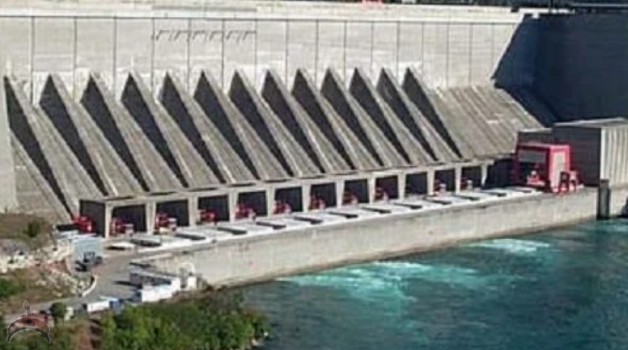Nnaji Jekwu Onovo
This is a clarion call to the federal government led by President Muhammadu Buhari and all policymakers to assess carefully our choice of nuclear energy in the country’s energy mix. Renewable energy is a means of decentralising the available energy sources or options in the country. If vigorously embarked upon, it would help Nigeria create the much-desired national energy sufficiency as well as promote positive environmental-consciousness and values.
Nuclear power is once again considered a prominent alternative, despite the disregard it was met with in the 1970s. This is because it is now being touted as a more environmentally beneficial solution since it emits far fewer greenhouse gases during electricity generation than coal or other fossil fuel (including gas) power plants. It is widely accepted as a somewhat dangerous, potentially problematic, but manageable source of generating electricity. Radiation is not easily dealt with, especially in nuclear waste and maintenance materials, and expensive solutions are needed to contain, control, and shield both people and the environment from its harm.
Nuclear power plants use nuclear fission, the process of splitting an atom in two. Nuclear energy comes from uranium, a non-renewable resource that must be mined. Nuclear power plants provide 10.9 per cent of the world’s electricity. Thirty countries worldwide are operating 444 nuclear reactors for electricity. Thirteen countries rely on nuclear energy to supply at least one-quarter of their total electricity.
Electricity generation is only conversion of energy from different forms to electricity, which is the most convenient form of energy.
Moreover, “Energy can neither be created nor destroyed,” First Law of Thermodynamics.
In several respects, nuclear and fossil fuel-burning power plants are similar; they use heat to generate steam and drive turbines to produce electricity. They mainly differ in where their heat comes from. A nuclear reactor uses radioactive decay, and a fossil-fuel plant burns coal, oil or natural gas. In addition to the technical differences between the two approaches, they affect the environment differently. Fossil-fuel plants are notorious for greenhouse gas emissions, whereas nuclear reactors are known for radioactive waste.
All utility-scale nuclear power plants simply use the reactor as a “nuclear boiler” to raise the steam, which is then used to drive conventional steam turbine-powered generators using the Rankine steam cycle in much the same way as the fossil fuel system. Instead of burning fossil fuel to provide the heat source in the boiler, heat is generated in a nuclear reactor by the controlled nuclear fission of unstable isotopes of heavy metals such as uranium.
Back in the 1950s, nuclear power held out the promise of abundant electricity “too cheap to meter,” or almost free. But today, utilities are encountering something they never expected: natural gas-fired power plants are cheaper to run than nuclear units.
Nigeria is arguably a gas-resource country with huge gas reserves. It has proven gas reserves of about 184tcf broken into 95tcf associated gas and 89tcf non-associated gas, estimated as the world’s seventh largest gas reserves.
In 2005, it was announced that the highly valued uranium had been found in six states of Nigeria. The six states are Cross River, Adamawa, Taraba, Plateau, Bauchi and Kano. The announcement was made by the Federal Ministry of Solid Mineral development. The uranium find was made by the Atomic Energy Division of the Geological Survey of Great Britain. But no details of the “great value” were given. So, what is our uranium reserve and how long will it last, as feedstock for the proposed nuclear power plants?
The world view about nuclear power plants could be deduced from the studies and subsequent publication made by Derek Abbott, professor of electrical and electronic engineering at the University of Adelaide, Australia. The results suggest that we are likely better off investing in other energy solutions that are truly scalable.
In his analysis, Abbott explores the consequences of building, operating, and decommissioning 15,000 reactors on Earth, looking at factors such as the amount of land required, radioactive waste, accident rate, risk of proliferation into weapons, uranium abundance and extraction, and the exotic metals used to build the reactors themselves.
“Due to the cost, complexity, resource requirements, and tremendous problems that hang over nuclear power, our investment dollars would be more wisely placed elsewhere,” Abbott said. “Every dollar that goes into nuclear power is dollar that has been diverted from assisting the rapid uptake of a safe and scalable solution such as solar thermal.”
On October 30, 2017, Russia and Nigeria signed project development agreements on construction and operation of a nuclear power plant (NPP) and a research centre housing a multi-purpose nuclear research reactor in Nigeria. The agreement was a furtherance of a memorandum of understanding signed between the Nigeria Atomic Energy Commission (NAEC) and Rosatom for the construction of four nuclear power plants. The four plants will have a total capacity of 4,000 megawatts by 2035. Although the deal’s exact worth is unknown, some persons familiar with the discussions suggest it is likely in the region of $20 billion.
However, Rosatom Central and Southern Africa chief executive officer, Dimitry Shornikov, in an interview in Lagos, said it would be difficult to provide the cost of producing nuclear energy in Nigeria because sizes and configurations of the nuclear plants are not the same. This is not like a gas turbine that is manufactured to generate a particular number of megawatts (MW) of electricity. “There are lots of variables that need to be considered in the process of configuring nuclear energy plants. The variables are in relation to the size of the plant, the volume of energy the plant would produce,” he added.
If there is need for nuclear power plant in Nigeria, going by the statement of Dimitry Shomikov, the cost could even be as high as $40 billion or more. I hope Nigeria will not tread same path as the Ajaokuta steel factory construction, ad infinitum.
Nigeria needs more electricity now and a promise of 10,00MW in 2025 and 4,000MW in 2035 will not make a dent in those needs. Nuclear power generation is not the solution to the current energy conundrum in Nigeria.
Nigeria has massive needs for power now and with a wealth of energy resources – coal, oil, natural gas, hydro, solar and wind, a US$20 billion commitment for nuclear power generation of 4,000MW could be applied to the generation of significantly more power from these resources in the medium term.
That Nigeria has attempted without much success to generate more power through the conventional resources does not imply it cannot be done. The obstacles have been founded on government policies and management tactics that engender deficiencies in project conception, selection and implementation and the maintenance of power plants and transmission lines.
Managing, regulating and securing nuclear plants and coping with any disasters will be very challenging for Nigeria. Furthermore, Nigeria and its neighbouring countries are prone to internal conflict and terrorists and the activities of disgruntled groups such as the current Boko Haram would increase the risks of nuclear accidents.
• Engr. Onovo is principal partner, Ozalla Hexagonal Technology, Lagos
 Ọmọ Oòduà Naija Gist | News From Nigeria | Entertainment gist Nigeria|Networking|News.. Visit for Nigeria breaking news , Nigerian Movies , Naija music , Jobs In Nigeria , Naija News , Nollywood, Gist and more
Ọmọ Oòduà Naija Gist | News From Nigeria | Entertainment gist Nigeria|Networking|News.. Visit for Nigeria breaking news , Nigerian Movies , Naija music , Jobs In Nigeria , Naija News , Nollywood, Gist and more









